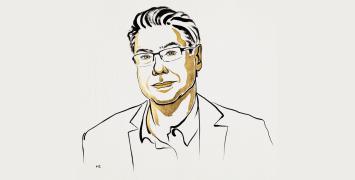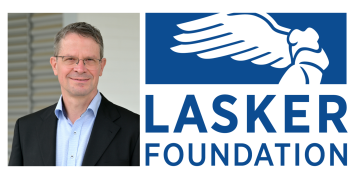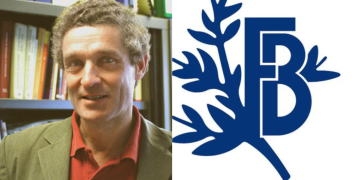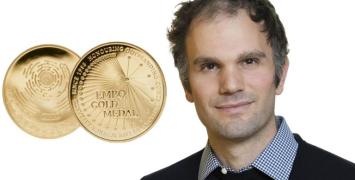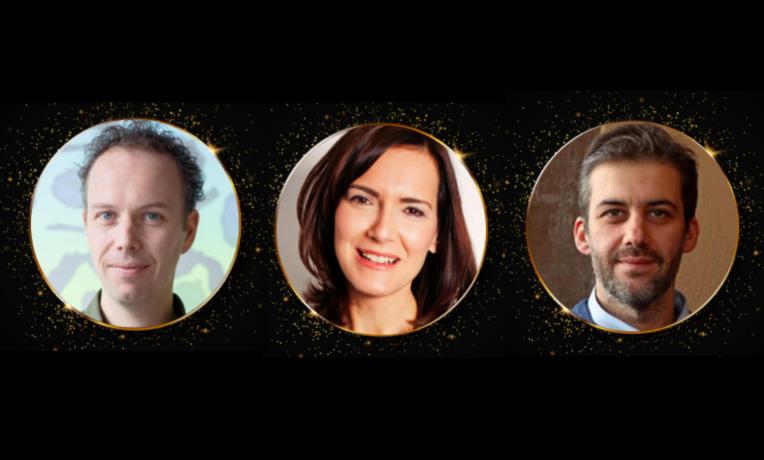
Professors Anna Davies from Trinity College Dublin, Ireland, Konstantinos Nikolopoulos from the University of Birmingham, UK, and Erik Van Sebille from the University of Utrecht, Netherlands, have been awarded the ERC Public Engagement with Research Awards 2020. This is the first award of its kind, which the European Research Council (ERC) has launched to put the spotlight on how its grantees inspire the public with their research.
On this occasion, Mariya Gabriel, European Commissioner for Innovation, Research, Culture, Education and Youth, said: “Excellent research demands excellent engagement with the public. This is especially important nowadays when science must often compete with misinformation. We need the strong storytellers and creative communicators out there. I’m glad that many EU-funded researchers have gone the extra mile to communicate their amazing discoveries and interact with the public. I hope more scientist and scholars will be inspired and follow in their footsteps. Congratulations to all the laureates!”
Vice President of the European Research Council, Professor Fabio Zwirner commented: “The ERC trusts researchers to identify the path to scientific breakthroughs. The winners of our Public Engagement with Research Award all show that this bottom-up approach also works for communication. I was impressed by the number and quality of the entries in this new ERC contest. I would like to congratulate the laureates, thank all those who took part in the competition, and encourage all ERC grantees to keep sharing their passion for research.”
The purpose of the ERC Public Engagement with Research Award is to recognise ERC grantees who make the effort to engage with audiences beyond the scientific community and do so in effective and original ways. The 2020 Award has three categories: Public Outreach, Press and Media Relations, and Online and Social Media.
The competition opened on 24 September 2019 and closed on 10 January 2020. Contestants submitted 138 entries. The Jury of the Award is composed of renowned researchers, science communicators, science journalists and science policy makers. The winners receive a trophy and a tailored communication training session. In addition, the winning entries will be featured prominently on the ERC communication channels, expanding the visibility of the laureates’ research. The award competition is envisaged to be held every two years.
More about the laureates
Category: Online and Social Media
Anna Davies, Trinity College Dublin, Ireland
ERC project: SHARECITY
The winner in the online and social media category is Prof. Anna Davies with SHARECITY, an ERC-funded project studying urban food-sharing practices. The project developed a comprehensive online and social media communication and engagement strategy, the central pillar of which is an interactive website, a blog and social media accounts.
As part of their public engagement with research effort, the project engaged with a range of online and social media platforms, networks and initiatives, in order to collaborate, crowdsource experiences and disseminate their findings. This visibly enriched their research and was particularly important when crowdsourcing data for the first publicly accessible and searchable empirical database about food sharing activities within cities. The Jury commended the high quality of their public engagement with research effort, which was global in scope, supported by a clear strategy, and which animated a real online community. Additionally, what really stood out was the creation of the food-sharing database with public engagement all the way from the design to its implementation. The aim of the SHARECITY project was to identify, document and analyse urban food-sharing practices that harness information and communication technologies (ICT) to administer schemes or raise awareness in local communities. Working collaboratively with others, the project has generated an unprecedented volume of unique data.
Category: Public outreach
Konstantinos Nikolopoulos, University of Birmingham, UK
ERC project: ExclusiveHiggs
The winner in the public outreach category, Konstantinos Nikolopoulos’s ERC-funded project ExclusiveHiggs, explored the interface between science and art to inform, educate and inspire the public. This public engagement with research activity included art exhibitions, dance performances and workshops with students. The scope of the effort was to engage audiences that are traditionally challenging to reach: artists, as well as citizens and students interested in art, but not necessarily in science. Engaging with artists was crucial, as they were the ones producing the means, i.e. the art, to approach the public.
One very distinct feature of the activities was that the artists did not make art ‘inspired’ by science, but art that communicated scientific concepts. In the process, the artists became the ambassadors of particle physics, which facilitated the engagement of the other two target audiences. The student workshops were also innovative in the sense that the students involved in the workshops first learnt and discussed about particle physics concepts, and subsequently created art that aspired to communicate some of these concepts.
The Jury commended the project for having a real impact on people that are not the regular audience for frontier science. It also praised its innovative methods to communicate about a very abstract topic.
The ExclusiveHiggs project experimentally explores the interactions of elementary matter particles with the Higgs boson at CERN’s Large Hadron Collider, the world’s largest and most powerful particle accelerator.
Category: Press and media relations
Erik Van Sebille, University of Utrecht, Netherlands
ERC project: TOPIOS
The problem of plastic pollution in the oceans has received extensive media attention. However, there are a number of pervading myths, which could lead to ineffective policies. The winner in the press and media category, ERC-funded TOPIOS project led by Erik Van Sebille, has actively engaged with journalists, policymakers and the public to bust some of these myths with the aim of improving the quality of the public discourse on solutions to plastic pollution.
The centrepiece of this public outreach effort was the creation of a website that provides concise answers to the seven common misconceptions about plastic pollution in oceans. To ensure dissemination and wide reach, the project approached a range of international media with a single and clear message: debunking these myths. The effort resulted in impressive media coverage, including prominent media outlets such as Le Monde, Science and National Geographic. The Jury commended TOPIOS’ approach of having a single, clear message, which not only had a considerable impact in the media but also engaged policymakers at the international level.
Marine plastic pollution is a major environmental problem, however, only about 1 % of all plastic that has ever gone into the ocean has been mapped. The other 99% is ‘missing’. Having a better understanding of the whereabouts of this missing plastic is important for making effective policies to tackle this problem. The main aim of the TOPIOS project is to create the first three-dimensional map of all the plastic in our oceans.
About the ERC
The European Research Council, set up by the European Union in 2007, is the premiere European funding organisation for excellent frontier research. Every year, it selects and funds the very best, creative researchers of any nationality and age, to run projects based in Europe. The ERC offers four core grant schemes: Starting, Consolidator, Advanced and Synergy Grants. With its additional Proof of Concept grant scheme, the ERC helps grantees to bridge the gap between their pioneering research and early phases of its commercialisation.
To date, the ERC has funded over 9,000 top researchers at various stages of their careers, and over 50,000 postdoctoral fellows, PhD students and other staff working in their research teams. The ERC strives to attract top researchers from anywhere in the world to come to Europe. Key global research funding bodies, in the United States, China, Japan, Brazil and other countries, have concluded special agreements to provide their researchers with opportunities to temporarily join ERC grantees' teams.
The ERC is led by an independent governing body, the Scientific Council. The overall ERC budget from 2014 to 2020 is more than €13 billion, as part of the Horizon 2020 programme, for which the European Commissioner for Innovation, Research, Culture, Education and Youth, Mariya Gabriel is responsible.

